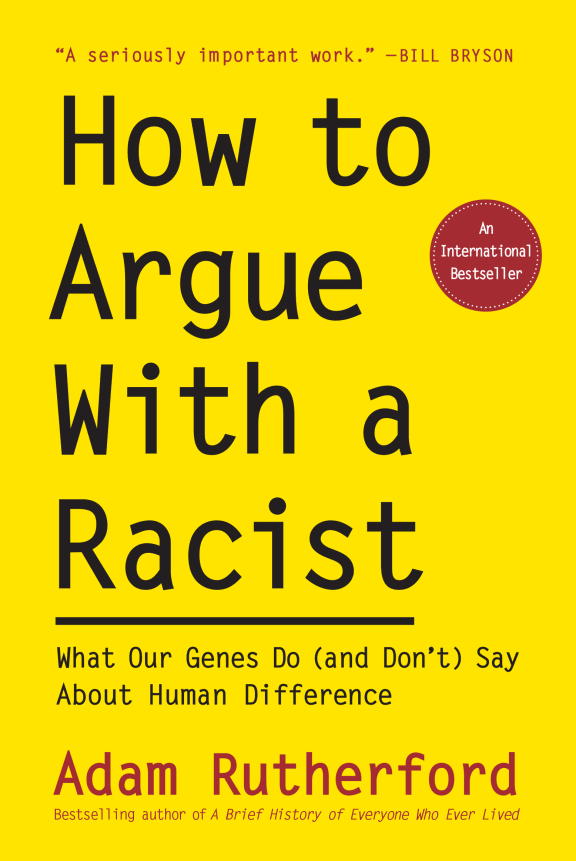British broadcaster, science writer and 'recovering geneticist' Adam Rutherford has just released a book How To Argue With A Racist.
In it he uses science to debunk persistent and false racist ideas.
He and told Kim Hill that skin colour as a determinant of race is a relatively new idea.

Geneticist and BBC broadcaster Adam Rutherford. Photo: Supplied
“It’s hundreds of years of baking racist views into our culture, often enabled by some pretty lousy science, or some pseudo-science, that was effectively invented in the 16th or 17th century by European colonisers.”
Race, he says, is a “socially constructed idea, rather than a biologically constructed one.”
His book challenges ideas such as black people being more genetically pre-disposed to sprint running – a common theory based on the fact the last white man to win a 100-metre sprint Olympic gold was Alan Wells in 1980.
Genetics certainly matter in sport, he says. The question is whether those genetics are unique to specific ethnic groups.
“When we start talking about black people, this is a term that has very, very little biological utility in describing the 1.2 billion people that currently live in Africa plus the 42 million people who are African Americans,” Dr Rutherford says.
Black African people have great genetic diversity, he says.
“What that means is you take someone from Uganda and someone from Ethiopia or South Africa, they will be more different to each other than either one of them is to a Māori or a native American or a Chinese person - and we have known this for literally decades in genetics.
“So, when we very casually say well black people are better at sprint running because I haven’t seen a white guy since 1980 what you’re actually talking about there is genetic freaks - and I mean that in a very positive way - because to be at the extreme level of that sport you have to be unusual anyway. But the sample you are actually drawing from is miniscule.
“Since Alan Wells in 1980 only 56 men have competed in that race, so from a scientific point of view, it’s a complete non-starter.”
The idea of racial purity, or indigeneity, is longstanding and “deeply, deeply problematic,” Rutherford says and DNA tests, which white supremacists say proves they are Aryan or European are meaningless.
“White supremacists are absolutely obsessed with these tests because they’ve co-opted this slightly flaky science in order to say this does demonstrate their racial purity
“A huge proportion of conversations [on white supremacist websites] are about people showing their own test results from DNA ancestry and then they saying things like I’m 100 percent white.
“This is a meaningless thing to say.”
Our ancestors double every generation, he says.
“If you keep doing that, mathematically, by the time you get to the 13th century then you have more ancestors than the number of humans who have ever existed.”
We are all genetically related, he says.

Photo: The Experiment Publishing
“We know mathematically, and now from genetics, that all humans share common ancestors from about 3000 years ago.”
It amuses him to think that every Neo Nazi has, without question, Jewish, middle eastern or African ancestry, he says.
“So, all of these guys who are taking these tests and posting their results saying ‘I’m 100 percent Aryan’ … humans are an African species. We all have African ancestors from within the last 500 years probably.”
When it comes to race we have short term memories, he says.
“The notion that races are based on pigmentation, it feels like an incredibly obvious and therefore a permanent way of categorising people.
“But the truth of the matter is it’s an incredibly recent invention.”
There are references to pigmentation in Antiquity but not as the defining determinant of race, he says.
“Skin colour only really becomes significant during European expansionism in the 17th century onwards.”
Proto scientists of that era, such as Carl Linnaeus, start to talk about skin colour and attach personal characteristics to it, he says.
“Linnaeus talks about black people as being lazy or not fit for work, without shame and lustful. He talks about Chinese people as being yellow and haughty and greedy.
“Europeans - they are graceful and intelligent and attractive and generous.
“So, you’ve got these pseudo-scientific, made up categorisations from the 17th century onwards that have effectively stuck in our minds over the last three four centuries.”
The differences between people based on skin colour are incredibly superficial, Rutherford says.
“If you want to be a bigot, a racist, then fine but you can’t have my tools, you can’t have science to justify those positions.”

